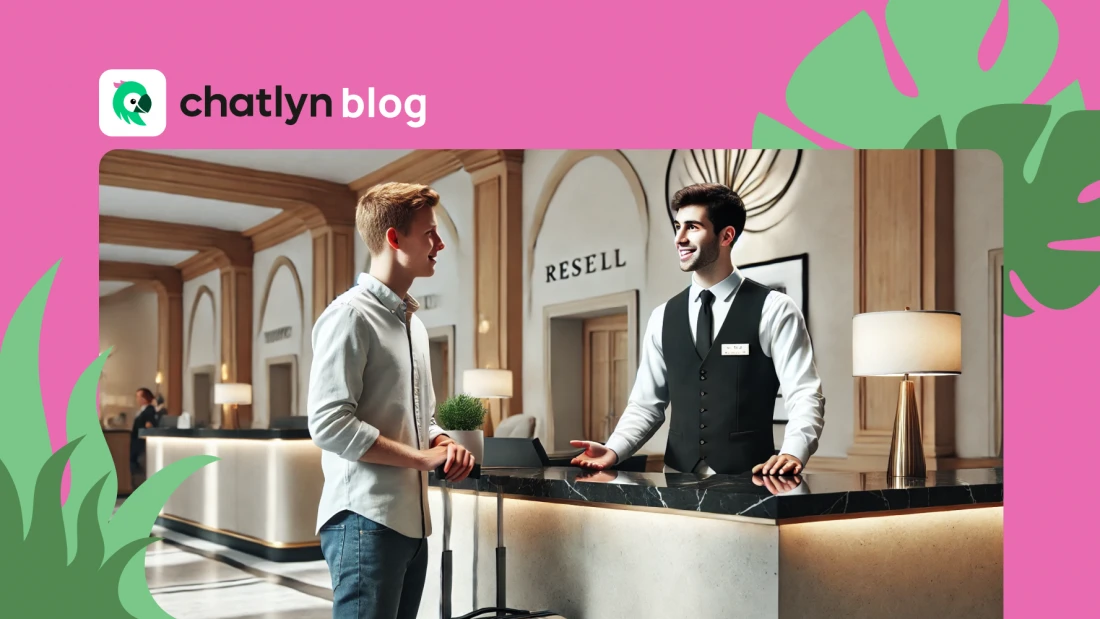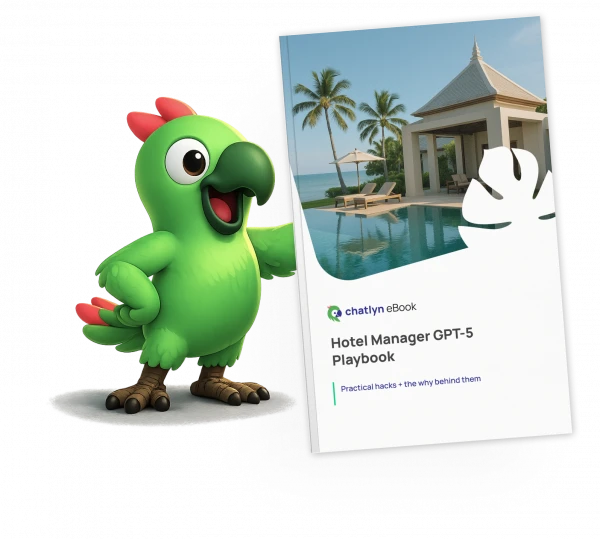Imagine a traveler searching for a hotel at midnight ?. They want detailed information about amenities, pricing, and availability—without having to wait until morning for an email reply. This new reality of guest expectations demands immediacy, personalization, and convenience. Welcome to the era where hospitality meets real-time communication.
The days of relying solely on static ads and one-way email blasts are quickly becoming outdated. Modern travelers crave more than just promotions; they want instant engagement and personalized recommendations—the kinds of interactions that can only happen when hotels adopt a more conversational approach.
This is where conversational marketing steps in. By blending automation, AI, and real-time engagement, conversational marketing transforms routine guest interactions into meaningful exchanges. It’s not about pushing a sale but rather about guiding guests through their decision-making process with ease and authenticity.
Conversational marketing is not merely a strategy to sell more rooms. It’s about engaging travelers on their terms, turning one-time guests into loyal patrons through personal, instant, and relevant conversations.
What Is Conversational Marketing?
Conversational marketing is a real-time, two-way dialogue between hotels and their guests. Instead of impersonal, one-way blasts, hotels embrace tools that foster dynamic, back-and-forth interactions. This includes:
- ? Live Chat – Providing immediate, human-like responses for all types of guest inquiries.
- ? Chatbots – AI-powered assistants that handle FAQs 24/7, freeing human staff for complex tasks.
- ? Social Messaging – Reaching travelers on platforms they already use, like Instagram, Facebook, and WhatsApp.
- ? AI-Powered Personalization – Tailoring offers and recommendations based on past bookings, preferences, and behavior.
Ultimately, conversational marketing seeks to bridge the gap between brand and traveler. It’s not just about answering questions but also about discovering what matters most to your guests—helping them find the perfect room type, suggesting local experiences, and resolving concerns in real time. This interactive, person-centric approach fosters higher guest satisfaction and stronger brand loyalty over the long term.
The Goals and Benefits of Conversational Marketing in Hospitality
? Goals:
- Personalized Guest Experience: Provide real-time, tailored interactions before, during, and after a stay.
- Increased Direct Bookings: Reduce reliance on OTAs by engaging guests directly on your platforms.
- Deeper Guest Engagement: Strengthen relationships through meaningful conversations.
? Benefits:
- Enhanced Trust and Loyalty: Guests who feel heard and valued are more likely to return.
- Higher Conversion Rates: Instant answers and real-time support remove booking barriers.
- Cost-Effectiveness: Chatbots and AI assistants reduce the workload for human staff.
- Upselling and Cross-Selling: Suggest room upgrades, dining options, or experiences at the right moment.
- Valuable Data Insights: Every interaction helps refine marketing strategies and improve service offerings.
A Trend Redefining Hotel Marketing
Guest expectations have changed. No one wants to wait days for an email response or sit through long hold times ?. Speed and convenience are now top priorities.
Hotels that embrace conversational marketing see higher guest satisfaction, more direct bookings, and stronger brand loyalty.
"Our goal was to implement AI in the near future, but our chatlyn consultant did the whole AI setup in just 2 minutes. We uploaded our guest directory and website pages, and the AI immediately started answering questions on all messenger channels, including WhatsApp and Instagram." – Jan Hüpers, Hotel Manager, La Quinta by Wyndham Jumeirah, Dubai
Tools and Types of Conversational Marketing for Hotels
? Live Chat on Hotel Websites
Live chat allows potential guests to receive instant responses to their inquiries, whether they need help with room availability, pricing, or hotel amenities. It serves as a direct line to customer service representatives and provides a personalized experience.
Benefit: Guests get answers in real time, reducing booking hesitation and increasing direct reservations.
✅ Example: chatlyn’s WebChat Widget enables hotels to respond to guest inquiries instantly, minimizing drop-offs and maximizing conversions.
? Chatbots
Chatbots are AI-driven assistants that provide 24/7 customer support. They can handle frequently asked questions, provide room recommendations, and assist guests with common requests.
Benefit: Chatbots are scalable, multilingual, and capable of handling multiple guest inquiries simultaneously.
✅ Example: chatlyn’s AI Chatbot automates guest interactions, delivering personalized responses and reducing staff workload.
? Social Media Direct Messaging
Many guests prefer to communicate with hotels through social media platforms like Instagram, Facebook Messenger, and Twitter. Hotels can engage with guests on the platforms they already use and provide quick support.
Benefit: Social messaging fosters casual, high-engagement conversations that improve brand affinity.
✅ Example: chatlyn's Omnichannel Inbox gatters all the social media platform togethers (Instagram, Facebook, Line... etc.) and allows you to not miss any conversations.
? Messaging Apps (WhatsApp, SMS)
Hotels can use messaging apps to send booking confirmations, exclusive offers, and loyalty program updates directly to guests' phones. These platforms boast significantly higher open rates than email.
Benefit: Higher open and engagement rates make WhatsApp and SMS ideal for guest communication.
✅ Example: chatlyn’s WhatsApp Newsletters enable hotels to send targeted promotions with an impressive 98 percent open rate and sends an SMS instead when the number has no WhatsApp installed.
? Voice Assistants and Smart Speakers
Voice search is becoming a common way for travelers to find hotels, check availability, and request services. Smart speakers and voice assistants allow guests to make bookings or request assistance hands-free.
Benefit: This emerging technology is convenient, easy to use, and enhances the guest experience.
Implementation Tips
- ✅ Start Small: Begin with one channel, such as live chat, before expanding to others. With chatlyn’s WebChat Widget, you can instantly provide real-time support on your website while easily scaling to messaging apps like WhatsApp and Facebook Messenger.
- ✅ Leverage chatlyn’s AI-Powered Automation: Use chatlyn’s AI chatbot to handle FAQs and streamline repetitive inquiries. The chatbot operates 24/7, ensuring guests receive instant answers even outside business hours, while human agents can focus on more complex guest interactions.
- ✅ Balance Automation and Human Touch: AI is powerful, but the human element remains crucial. chatlyn allows seamless handoffs between AI and human agents, ensuring personalized service when needed. Train staff to take over conversations when guests require deeper assistance.
- ✅ Train Your Team with chatlyn’s Onboarding Support: Implementing conversational marketing doesn’t have to be overwhelming. chatlyn’s onboarding specialists guide your team through the setup process, ensuring smooth adoption and best practices in guest engagement.
- ✅ Measure and Optimize with chatlyn’s Insights: Use chatlyn’s built-in analytics to track response times, conversation resolution rates, and guest satisfaction scores. These insights help refine your strategy, ensuring continuous improvement in guest interactions.
- ✅ Stay Compliant and Secure: chatlyn ensures compliance with data privacy regulations such as GDPR. The platform provides tools to obtain guest consent for messaging, protecting both your hotel and your customers.
Conclusion
Conversational marketing is no longer an option—it is a necessity in modern hospitality. By adopting AI-powered chat solutions like chatlyn, hotels can offer faster, more personalized service, leading to happier guests and higher revenue.
? Want to transform your guest experience? Explore how chatlyn can elevate your hotel’s communication strategy today.


